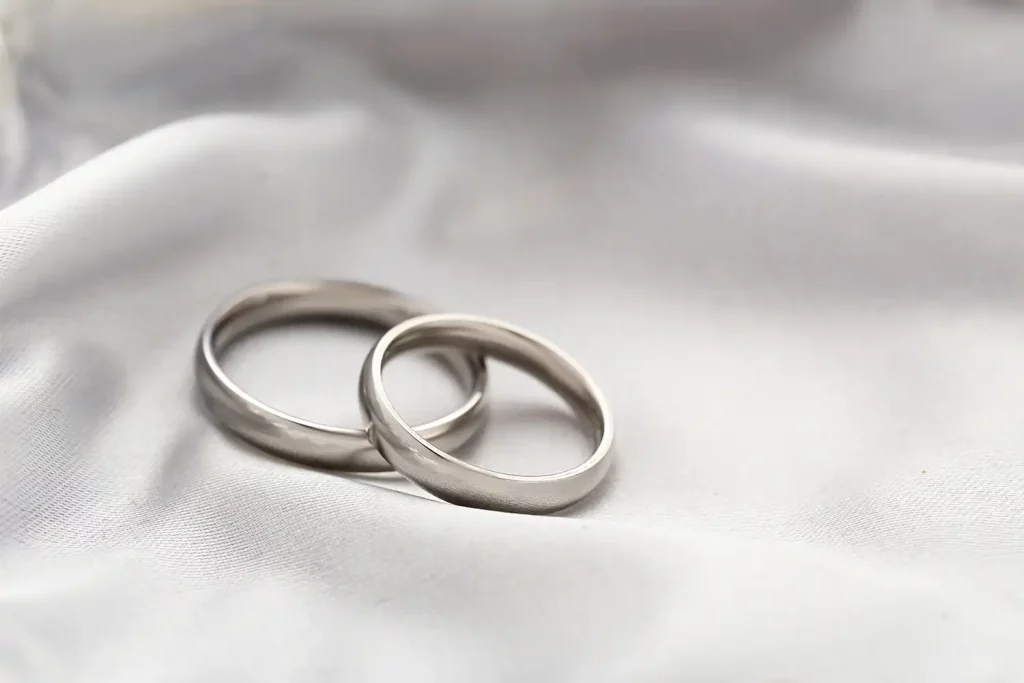Marriage and civil partnership discrimination at work
Now that marriage and civil partnerships are on an equal footing in the eyes of the law, discrimination at work against people who were in civil partnerships is less common than it used to be. However, workplace discrimination against both married people and those in civil partnerships still happens.
Rated 4.8 Stars in Over 1,000 Reviews
In this guide, we outline what kinds of discrimination you may face because you are married or in a civil partnership and what you can do about it.
For further detail about discrimination at work, see our other guides:
- Discrimination at work
- Discrimination compensation in discrimination claims
- Preparing a schedule of loss and how to calculate your financial claim
- Discrimination relating to age, disability, gender reassignment, mental health, pregnancy and maternity, religion and belief, sex, sexual orientation, veganism.

What is marriage and civil partnership discrimination?
Marriage and civil partnership discrimination is when you’re treated badly because you are married or in a civil partnership. Our focus is on this type of discrimination when it occurs in the workplace.
What types of marriage and civil partnership discrimination are there?
There are three main types of marriage and civil partnership discrimination under the Equality Act 2010.
Unlike the other 8 ‘characteristics’ that are protected against discrimination by the Equality Act, the ‘harassment’ provisions do not apply to marriage and civil partnership (see our introductory guide on discrimination). This means that you can’t claim that you have been the victim of harassment related to discrimination because you are married or in a civil partnership.
However, if you have the necessary evidence, you can claim for the following:
Direct marriage and civil partnership discrimination
Direct marriage and civil partnership discrimination is when you’re treated badly because you’re married or in a civil partnership. For example:
- If the managers in your business are against civil partnerships and choose not to promote you because you’re in such a partnership, that would be unlawful.
- A woman applies for a senior job and mentions at her job interview that she is going to get married. She doesn’t get the job because the employer thinks it’s too demanding for a married woman.
Direct discrimination can never be justified unless it’s because of a “genuine occupational requirement”. So for example, direct discrimination would not be committed when a religious organisation such as the Catholic church refuses to appoint a married priest.
Indirect marriage and civil partnership discrimination
Indirect discrimination is when a practice or a policy is applied equally to all staff, but it has a detrimental effect on people with a particular protected characteristic, in this case being married or in a civil partnership.
For example, an expectation to attend office parties or a work trip away is, on balance, harder to comply with for people who are married or in a partnership.
Indirect discrimination can be justified if there is a good reason for the policy or practice. A business might say that an office party is necessary for bonding, or that a work trip is necessary because of the amount of work that gets done during such events.
Victimisation related to marriage and civil partnership
Victimisation is when you’re treated badly because you’ve made a complaint about discrimination. It also applies if you do something related to a complaint, such as supporting a colleague when they complain.
For example, you think that your employer discriminated against you when they didn’t promote you because you’re married and then you complain about the discrimination.
Then if they treat you badly because you complained, even if at first they didn’t care whether or not you were married, that would be counted as victimisation.
Is your civil partnership leading to discrimination at work?
Speak to Monaco Solicitors about your case
Request Callback
What can you do about marriage or civil partnership discrimination?
If you’ve suffered the discrimination outlined above at work, the first thing we normally recommend is that you should try to sort it out informally – either with management and/or the perpetrators if they are different. If those attempts fail, you could do any of the following:
1. Raise a formal grievance
Raising a formal grievance is your attempt to resolve the problem at a formal level and is something you might consider if you wanted to continue with your employment. See raising a grievance for practical guidance.
2. Make a claim at an employment tribunal
Bringing a tribunal claim is time-consuming, risky and stressful – and if you instruct a lawyer it’s also expensive unless you have got legal expenses insurance or similar. (See our guide on tribunal costs)
You could of course tell your employer that you intend to bring a claim, but then seek to settle it by way of a settlement agreement.
3. Negotiate a settlement agreement
Negotiating a settlement agreement is particularly suitable if you want compensation for the discrimination you have suffered, but have had enough of your job and would like to leave.
A settlement agreement means that you give up any rights to bring the same or similar claims to a tribunal or court in future, in exchange for an agreed financial amount. You might also be able to get certain other benefits such as an agreed job reference and limits on important things like ‘restricted covenant’ clauses.
What discrimination compensation could you get?
If you win a discrimination claim at an employment tribunal, you’ll be awarded compensation for financial loss suffered, in particular for loss of earnings. You will also get an award for .injury to feelings and possibly also for personal injury.
See our separate guide on discrimination compensation for more detailed information and guidance on the subject.

How can you prove marriage or civil partnership discrimination?
Proving discrimination is notoriously hard – your boss is not going to state in writing that they’ve discriminated against you.
These cases often do come down to your word against theirs, which is worth bearing in mind if you do bring a claim. And if you can find a witness who is willing to give evidence for you, then get their witness statement as soon as you can – there may be more people willing to give evidence for your employer, especially if they are keen to keep their job!
Be creative when thinking about evidence
For example, your manager wants you to work overtime, but you say you can’t because your civil partner is ill and needs looking after. Your manager responds with a lot of abusive comments about civil partnerships and the kinds of people who enter into them.
You then send your partner a message telling her what happened and repeating some of the insults.
That message would carry a lot of weight at an employment tribunal hearing because you’re unlikely to have sent the message at the time if the event hadn’t happened.
Can you claim for discrimination as well as unfair dismissal if you’ve been dismissed?
If you’ve been dismissed because you’re married or in a civil partnership you could consider two types of claims: discrimination and unfair dismissal.
If you’ve been employed for less than two years, you can only bring the discrimination claim because an unfair dismissal claim requires a minimum of two years’ continuous employment before you can make one.
Another advantage of discrimination claims is that damages are not “capped” – in other words, they have no upper limit. If you can prove the discrimination and your losses, the tribunal will not arbitrarily limit your losses as it would for unfair dismissal (where the limit is pegged at the lower of a year’s gross salary or £115,115 – from April 2024).
In some instances, however, you might be able to claim for both discrimination and unfair dismissal: but you would need strong evidence and a good lawyer to advise you before making any such decision – see below.

Next steps
If you have been discriminated against for being married or in a civil partnership and have the evidence to back it up, then you may have a claim against your employers.
If you would like to talk to someone about whether or not you have a case or to help you settle it by way of a settlement agreement or employment tribunal, then contact Monaco Solicitors.
We are an established employment law firm that only represents employees (not employers) so we don’t have any conflicts of interest and our only goal is to get the best possible outcomes to suit you in your circumstances.
If you’d like to speak to a member of our team to find out more:
- Contact us for a callback via this link,
- Phone 020 7717 5259
- Email communications@monacosolicitors.co.uk.
Our related guides
- Age discrimination at work: a guide for employees
- Discrimination compensation: Settlements and tribunal awards
- Age discrimination at work: a guide for employees
- Disability discrimination at work
- Mental health and discrimination at work
- Pregnancy and maternity discrimination at work
- Race discrimination in the workplace
- Sex discrimination at work